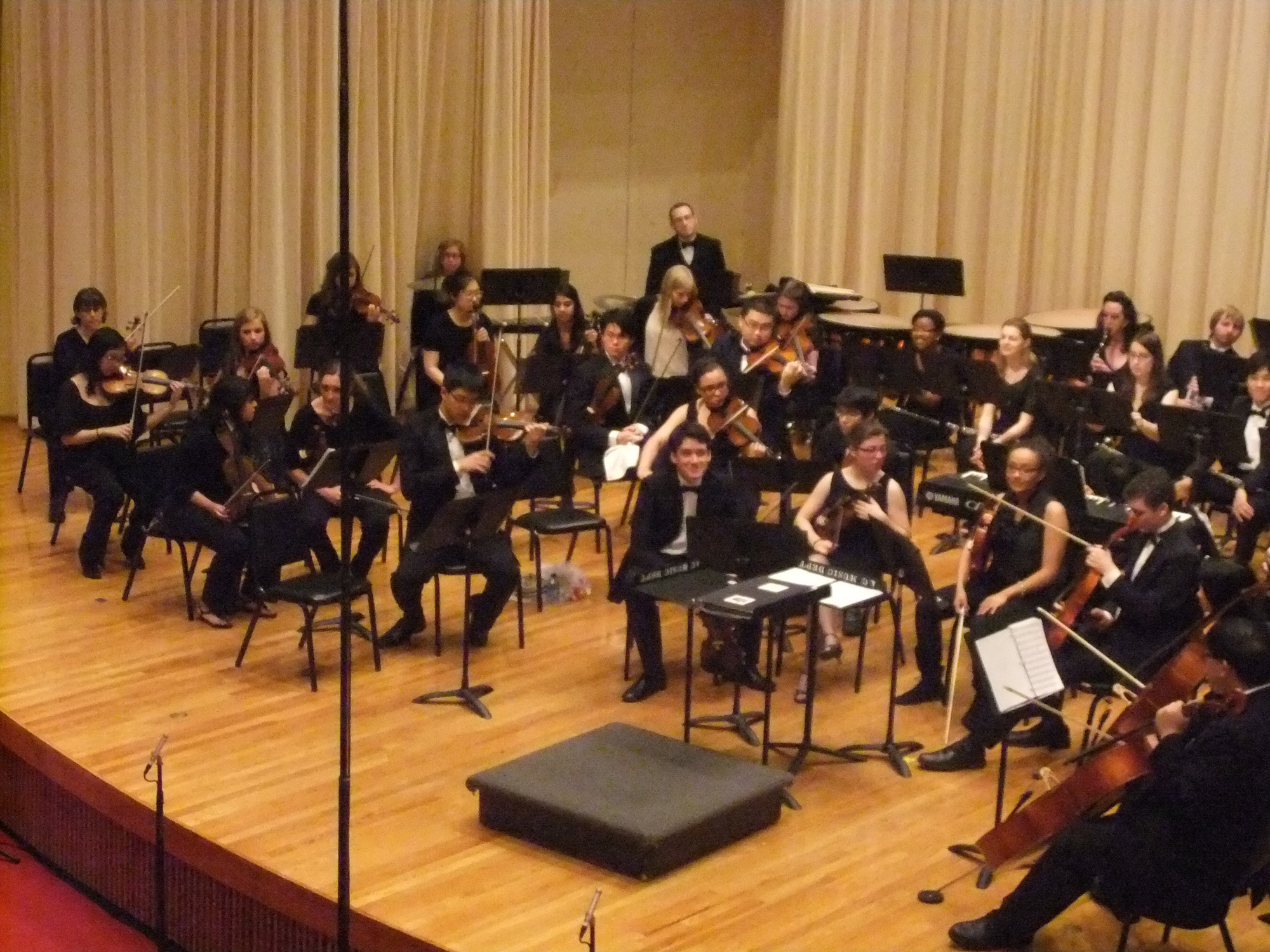

Rodgers and Hammerstein? It can’t have been a coincidence. A casual and fun performance the same weekend that admitted students came streaming in? Well played, Amherst Symphony Orchestra, well played.
Just as well played was the actual music, which lived up to Amherst’s usual standards of excellence in “The Sound of Their Music: A Tribute to Rodgers & Hammerstein.” It was a performance that combined the vocal prowess of seven students with an excellent accompaniment provided by the Amherst orchestra.
The night opened with “It’s a Grand Night for Singing,” a song from the musical play “State Fair,” to which all of the seven singers contributed. It was also a piece in which two problems that would plague the rest of the performances became very obvious. The first was the unfortunate fact that we could not, in fact, hear all of the singers. The second was the lack of a separate stage or area for the singers to interact within, making the transitions awkward. I can’t blame the singers for either of these handicaps, but as a member of the audience, it was at times very distracting and seemed to be an inconvenience.
Next was a medley of songs from “Oklahoma!,” which was a purely orchestral piece and then “Kansas City” from the same play, sung by Conrad Karsten ’14. This was a cute performance because of Karsten’s costume (he wore a hat and brown vest), but like all the singers to follow him, it was pitchy and difficult to hear. There was also no room on the stage for his wonderful theatrics, forcing you to stand to see Karsten if you were on the second floor as he moved to the floor for his dance. One last thing — I have to wonder why this particular song was in the program. Massachusetts is clearly better than Missouri, just saying.
Next to be featured was the more famous “The King & I,” with Aleksei Nazarov from the Univ. of Massachusetts and Alexandra Burkot ’15 singing “I Have Dreamed.” It’s not one of the more memorable pieces from the play, but it effectively highlighted both of the singers’ great ranges and classical training. Hilary Bunwey ’13 followed up with “Love Look Away” from “Flower Drum Song.” Hers is a significantly sweeter voice than you would normally expect to hear for this song, but it carried with it a surprising amount of power.
I’m tempted to say that the next song, “Soliloquy” from “Carousel,” was the most technically difficult song to sing. Even if it wasn’t, I’m going to say that it was the best piece of the entire performance. David Ressler ’13 has an excellent ability to project his voice, making it the first piece that was fully audible to the audience. In addition to that, he gave us a convincing performance, complete with intense gaze and emotionally infused singing that this song required. Its improvisational feel required him not only to sing but also to act, both of which he did with aplomb. But let’s not give his actual voice less than what it deserves — general consensus is that his singing is amazing.
All of this means that you have to give Jackie Cosse ’14 props for being able to follow that performance. Her “I Enjoy Being a Girl” from “Flower Drum Song” was just as loud and incredibly spunky. In terms of engaging the audience, Cosse probably wins the round – her personality shone through each sassy hand gesture. In terms of singing, however, it’s Julia Moorman ’11 who takes the prize, with a range so amazing that even those who know nothing about music were impressed. She’s an incredibly talented and well-trained classical singer, and it showed.
Following a light-hearted medley of “South Pacific” songs was another performance by Cosse and Karsten, an absolutely adorable piece that featured a terrible but humorous attempt by Karsten to cross-dress. Just like the previous song by Cosse, “Honey Bun” was light-hearted fun and entertainment – not too serious, but a welcome break from the other pieces. In fact, while the songs featured in the set list themselves aren’t all great, you have to admire the way that singers were assigned to songs – the classical singers got longer, poignant pieces that would show off their training, while the less-trained, but more theatrical, got the peppy ones.
Rounding off the performance was another medley, this time of the infamous “The Sound of Music.” It featured two short solos from instrumentalists Daniel Ang ’15 on the cello and Benjamin Cohen ’11 on the violin, which made the orchestra’s interpretation of “Edelweiss” all the more richer. But just like the rest of the performance, the strength of this piece was in its fast-paced, catchier songs. I even saw one student bob up and down to “Lonely Goatherd,” making me wonder why the last song to be featured was the slower “Climb Every Mountain.”
But then I realize just how inspirational this song is, just as we face the last stretch of essays and tests before finals week. Climb every mountain, fellow students, every mountain of homework and exams, and soon we’ll be on the other side.